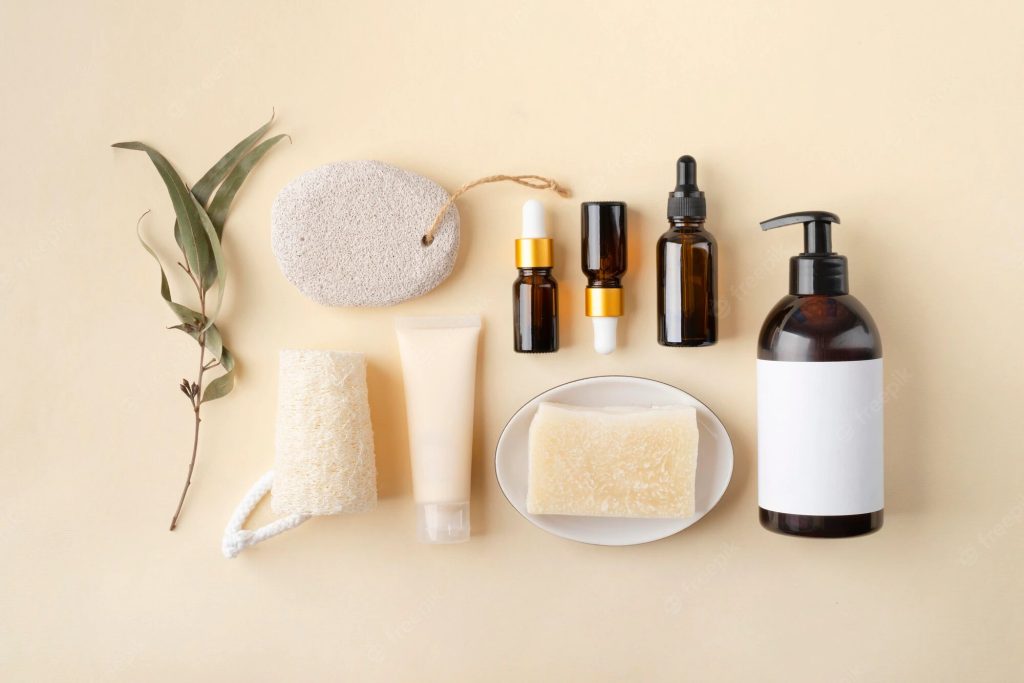How to Maximize Benefits with Organic Skin Care Products: 2024 Guide
In the realm of beauty and skincare, the trend towards organic products has been gaining significant momentum. The year 2024 marks a pivotal moment in this journey, with an ever-growing awareness and demand for organic skincare products.
This comprehensive guide is designed to educate and inform about maximizing the benefits of organic skincare, ensuring that your skin gets the best care it deserves, in the most natural way possible.
Understanding Organic Skincare
The foundation of maximizing benefits from organic skincare starts with a deep understanding of what these products are. These products are formulated with ingredients sourced from nature, free from synthetic chemicals, pesticides, and genetically modified organisms (GMOs).
These products prioritize natural processes and purity, offering a gentler and more environmentally friendly approach to skincare.
To truly benefit from this type of skincare, it’s crucial to recognize the difference between ‘organic’, ‘natural’, and ‘clean’ labels. While these terms are often used interchangeably, they have distinct meanings. ‘Organic’ implies strict adherence to organic farming standards throughout the sourcing and manufacturing process.
‘Natural’ means the ingredients are derived from natural sources, but not necessarily organic. ‘Clean’ skincare denotes products free from certain harmful chemicals but does not guarantee organic or natural ingredients.
In essence, your voyage into the realm of organic skincare offers a pathway to connect with nature, rejuvenate your skin, and embrace a conscientious lifestyle that cherishes purity and sustainability. So, as you embark on this exciting journey, explore the world of organic skin care brands that share your commitment to the well-being of your skin and the environment.
The Benefits of Going Organic
Switching to this type of skincare can offer a myriad of benefits. These products are generally kinder to the skin, and particularly beneficial for those with sensitive skin or allergies, as they are free from harsh chemicals that can cause irritation or adverse reactions.
Organic skincare also promotes healthier, more sustainable practices, both in farming and manufacturing, contributing to environmental conservation.
Additionally, these products are rich in natural nutrients, like vitamins, minerals, and antioxidants, which are essential for maintaining healthy skin. These nutrients are often more potent in organic products due to the lack of chemical interference during their cultivation and processing.
Choosing the Right Products
With an array of skincare products available in 2024, selecting the right ones can be overwhelming. It’s important to understand your skin type and its specific needs. Dry skin may benefit from oils and hydrating serums, while oily might require lightweight, non-comedogenic formulations. For sensitive types, products with minimal ingredients and soothing properties are ideal.
Reading labels and understanding ingredient lists is crucial. Look for products with certified organic ingredients and check for certification seals from reputable organizations. Be wary of misleading claims and do your research to ensure the authenticity of the organic products.
Incorporating Organic Products into Your Routine
To maximize the benefits, integrate natural skincare products into your routine thoughtfully. Start by replacing products that stay on your skin the longest, like moisturizers and serums, as they have the most significant impact. Gradually introduce new products to allow your skin to adjust and to identify any potential reactions.
Remember, more is not always better. Using too many products can overwhelm your skin, so focus on quality over quantity. A simple routine with a cleanser, toner, moisturizer, and sunscreen can be effective if you choose the right products for your skin type.
The Role of Diet and Lifestyle
It is not just about the products you apply externally; your diet and lifestyle play a pivotal role in the health of your skin. Consuming a balanced diet rich in fruits, vegetables, and healthy fats can enhance the effectiveness of your organic skincare regime. Hydration is equally important, as well-watered skin is more resilient and receptive to skincare products.
Regular exercise, adequate sleep, and stress management are also crucial for maintaining healthy skin. These lifestyle factors help improve circulation, boost collagen production, and reduce the impact of environmental stressors on your skin.
Staying Informed and Adaptable
The world of organic skincare is ever-evolving, with new products and ingredients constantly emerging. Staying informed about the latest trends, research, and products is essential to maximize the benefits of your routine.
However, it’s also important to be adaptable and listen to your skin. What works for others may not work for you, and your skin’s needs can change over time.
Regularly assess your skin’s condition and be open to adjusting your routine as needed. Consult with professionals, particularly when introducing new types of products or addressing specific skin concerns. Their guidance can be invaluable in navigating the vast world of organic skincare.
The Importance of Understanding Skin Types and Conditions
A critical aspect of maximizing the benefits of natural products is to understand your skin type and any specific conditions you might have. Different skin types – oily, dry, combination, sensitive, and normal – have varying requirements.
For instance, oily skin may benefit from lightweight, non-comedogenic organic products that regulate oil production without clogging pores.
Dry skin, on the other hand, may need richer, more hydrating products that contain oils and butters to nourish and moisturize.
Additionally, if you have specific skin conditions such as acne, eczema, rosacea, or hyperpigmentation, it’s essential to choose products that address these concerns without causing further irritation.
Organic products that contain natural anti-inflammatory, antibacterial, and soothing ingredients can be particularly beneficial. However, it’s always advisable to consult with a dermatologist or skincare professional when dealing with chronic or severe skin conditions.
Navigating Skin Sensitivities and Allergies
While organic skincare products are generally gentler and safer, it’s crucial to understand that natural ingredients can still cause sensitivities or allergic reactions in some individuals.
The key to navigating this is to pay attention to your skin’s reactions when trying new products. Patch testing, a method of testing a new skincare product on a small area of skin, can be a vital step in identifying any adverse reactions before applying the product to your entire face or body.
Furthermore, familiarize yourself with common allergens, even in natural products, such as certain essential oils or nut-based ingredients. Being well-informed about the ingredients in your skincare products and how they interact with your specific skin type and sensitivities is a significant aspect of maximizing the benefits of this type of skincare.
Wrapping Up
To conclude, embarking on a journey with organic skincare in 2024 is about embracing a holistic approach to beauty and health. It’s about understanding your skin, being mindful of the products you use, and considering their broader impact on health and the environment.
By educating yourself, staying adaptable, and maintaining a balanced and consistent skincare routine, you can maximize the benefits of natural skincare products. Remember, organic skincare is not just a regimen; it’s a commitment to nurturing your skin naturally, responsibly, and sustainably.
Related Posts:
- How To Get A Flawless Full Coverage Foundation - 4…
- 10 Best Shea Butters 2024 - Review & Buying Guides
- 7 Best Red Hair Dye for Dark Hair 2024 - Top Picks
- 15 Best Contour Kits 2024 - Top Picks Expert Review…
- 12 Best Coconut Oil For Natural Hair Growth 2024 -…
- 10 Best Almond Oil for Natural Hair 2024 - Top Picks…







